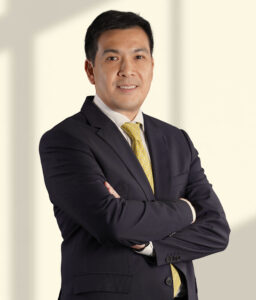By Kenneth Christiane L. Basilio, Reporter
THE PHILIPPINES is ill-equipped to combat misuse of artificial intelligence (AI) by political candidates, who could undermine the integrity of midterm elections in May, political analysts said.
“The use of generative AI (Gen AI) in elections presents a significant issue due to its potential misuse for disinformation and influence operation,” Rona Ann V. Caritos, executive director at election watchdog Legal Network for Truthful Elections, said in an e-mail.
Nearly half of the world’s population flocked to polling stations last year to cast their votes amid technological strides in Gen AI, which can create deepfakes — artificial videos in which images are combined to create footage that depicts events, statements or action that never really happened.
The United Nations Development Programme a 2024 report said Gen AI misuse is a rising threat to democracy because it could be used for electoral disinformation.
“Past elections in countries such as Indonesia, India, Nigeria, Slovakia and the US have demonstrated how deep fakes and AI-generated content can disrupt democratic processes,” Ms. Caritos said in an e-mailed reply to questions.
The 2025 midterm elections in the Philippines are crucial for President Ferdinand R. Marcos, Jr., whose political allies control majority of both Houses of Congress. He risks having his policy agenda sidelined if administration lawmakers fail to get re-elected.
“Midterms are always seen as a referendum of the administration and are also used by political forces in the Philippines to consolidate in preparation for the presidential elections,” Arjan P. Aguirre, who teaches political science at the Ateneo de Manila University, said in a Facebook Messenger chat.
Filipinos will pick more than 300 congressmen and fill 12 of the 24 seats in the Senate.
AI can be used to create and moderate social media content, analyze public sentiment and use targeted campaigns for specific voters.
“AI is a mere tool that can be maximized for the good or weaponized for the bad,” Danilo A. Arao, who started election watchdog Kontra Daya, said via Messenger chat. “The tools are readily available and can be easily maximized.”
Candidates could use AI to craft a campaign based on voter sentiment, Dominic Vincent D. Ligot, founder of CirroLytix Research Services, said in an e-mail.
“They could conduct their own surveys and run algorithms to determine where they can secure votes from the general population,” Allan C. Tan, chief AI scientist at startup Predictive Systems, Inc., said by telephone.
He said threats would come from “bad actors” who would likely create deepfakes against their political rivals. “It’s easier for them to create fake videos and fake photos. And if the voting population is not mature enough to recognize deepfakes, they might believe them,” he said in Filipino.
“Deepfakes are becoming the most popular AI form to malign people,” Mr. Aguirre said.
Mr. Tan said that AI could also be used to automate troll farms and disinformation drives meant to malign political opponents and influence public opinion.
“Traditionally, in previous elections, you had these keyboard warriors,” he said. “They can create spam bots. Imagine the harm it could do if it’s automated now.”
CONTENT REGULATIONAI advancements would likely result in intensified propaganda efforts by political candidates, Mr. Aguirre said. “They could publish more convincing work that can hook the minds of unsuspecting voters.”
“The current legal and regulatory framework in the Philippines is not sufficient to put a stop to the spread of false AI-generated content,” Commission on Elections (Comelec) Chairman George Erwin M. Garcia told BusinessWorld in a Viber message.
He said their jurisdiction over AI content moderation is limited during the election period, leaving a big gap in the oversight over politicians’ digital campaigns.
In September, the Comelec issued Resolution No. 11064, which prescribes the requirements of AI use for political campaigns, while also banning the use of deepfakes.
“It lays down the registration, transparency and disclosure requirements for the use of AI technology in digital election campaigns and prohibits the misuse not only of AI and deepfakes in the upcoming national and local elections, but the misuse of social media and internet technology as well,” Mr. Garcia said.
A measure that seeks to combat election-related disinformation by outlawing the operations of troll farms was filed at the House of Representatives in December. It imposes a jail term of as long as 12 years and a fine of as much as P2 million on violators, while also disqualifying candidates who willingly benefit from disinformation campaigns.
Enacting an anti-fake news law is “not a good idea” because it could be used to suppress critics, Mr. Arao said. “Curbing disinformation through legislative intervention should not be done as this is tantamount to censorship.”
Content regulation policies used in other countries could lead to censorship and abuse, Ms. Caritos said. “Content regulation involves broad and ambiguously worded definitions of what constitutes false content or disinformation and is used in conjunction with criminal sanctions.”
“Transparency initiatives are less draconian and effective in addressing the problem of disinformation,” she added.
The government should look at conducting educational campaigns about AI misuse, while also pushing a transparency framework on AI use, Mr. Ligot said.






